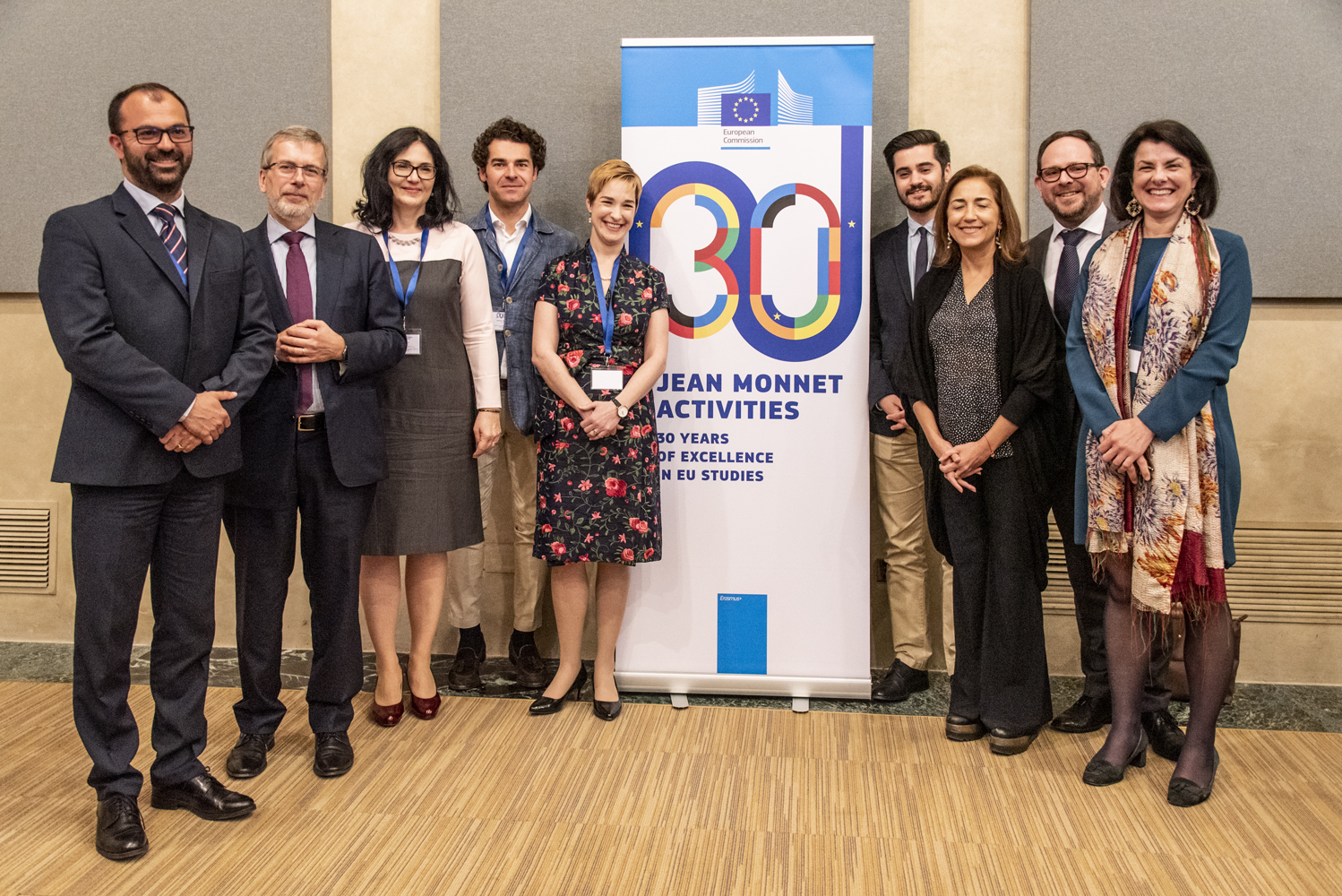It’s a bit odd to have one’s maiden blog at a new institution deal with diary dates. But there we are. I joined the Department of Politics at the University of Surrey in January, and it’s been a marvellous maelstrom ever since.
So, with apologies, I am overdue a blog or ten, on everything from EU relations with its neighbours, to upcoming European Parliament elections, to yes – the dreaded B-word. Those familiar with my work know I rarely pull my punches, and I’m looking forward to contributing more regularly in the coming weeks and months. Do check out last month’s submission to The Conversation on top tips for the European Parliamentary elections: https://theconversation.com/five-things-to-look-out-for-in-the-european-elections-117531
To return to diary matters, I’ve been buzzing about between Guildford, Brussels and Florence, in the past couple of weeks, supporting both new initiatives, and historic anniversaries in EU studies.
Newbie Spinelli?
The new initiatives are the Spinelli Awards for Outreach, launched in 2017, with the first prizes doled out last year, and a second batch this year. The ‘Spinelli’ was initially a 2-year Pilot Project initiated by MEP Luigi Morgano, but it gained support quickly from other MEPs, and was given to DG EAC (Education and Culture) of the European Commission to implement.
The Spinelli Awards are awarded to outstanding works that enhance citizens’ understanding of the European Union and widen the ownership of the European integration project. In the June 2018 inaugural ceremony, of which I was privileged to the mistress of ceremonies (sounds grand, I know), a full 22 Prizes (!) were awarded for a wide range of ground-breaking projects helping to promote both engagement and critical awareness of the EU. The prizes were conferred by MEP Luigi Morgano himself, EP Vice-President Mairead Mc Guinness (PPE), by Director-General Christophidou and by Prof. Pier-Virgilio Dastoli (Spinelli’s former assistant). It was a real privilege to be part of that first ceremony, and to become familiar with the wide range of projects on offer.
This year, streamlining was the order of the day. 5 larger awards were given, and a range of nominees invited to Brussels to discuss their work, and be celebrated for their energies. I was delighted to reprise my role as MC. It enabled me not just to be part of the prize-giving to a range of creative and committed prize-winners, but to announce that the ‘Spinelli’ had been voted by the European Parliament to continue for another 3 years. Great news, all around.
More info on the Spinelli, its background, winners, and objectives can be found here: https://ec.europa.eu/education/news/winners-of-the-2018-altiero-spinelli-prize-for-outreach-celebrated-in-brussels_en.
Erasmus: 30 Years Young
The pillars of EU studies are the Erasmus programme (30 years last year) and the Jean Monnet programme (30 years this year). Erasmus celebrations have been held the length and breadth of Europe, and far beyond, to celebrate this most cherished of mobility and exchange programmes. There’s a huge amount of info on Erasmus (or Erasmus+ as it’s now known), and I’d encourage you to check out the very real impact that this has had on legions of students and scholars from every part of Britain, Europe and the wider world.
Erasmus is focused on students – university students, and increasingly secondary school. Youth, in a nutshell. Recent offshoots include European Youth Week, which the Department of Politics celebrated in fine style on 2 May, at the new MySurreyHive, with a variety of fun, interactive games on Europe, bite-sized ‘in conversation with’ staff and students working directly on European issues, a mini-hustings of Politics students running in the local elections, and an overview of disability issues and responses. Here, staff and students demonstrates their expertise on Europe in general (like, where actually is it), the range of images on the Euro coin (clues available for those who can read clockwise), and the proactive nature of our students and staff in supporting events that celebrate all things Britain and Europe: 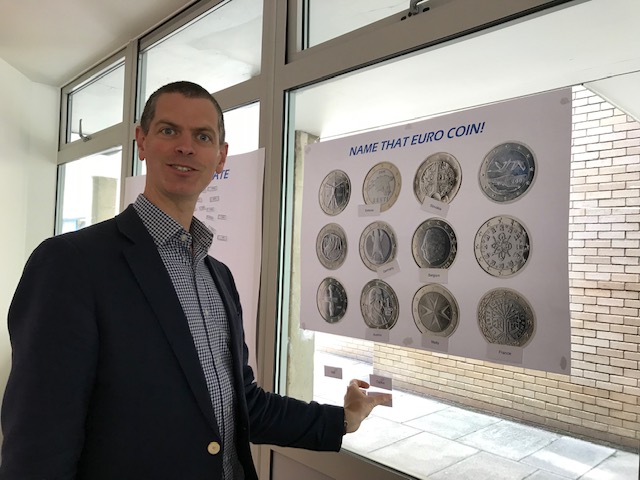
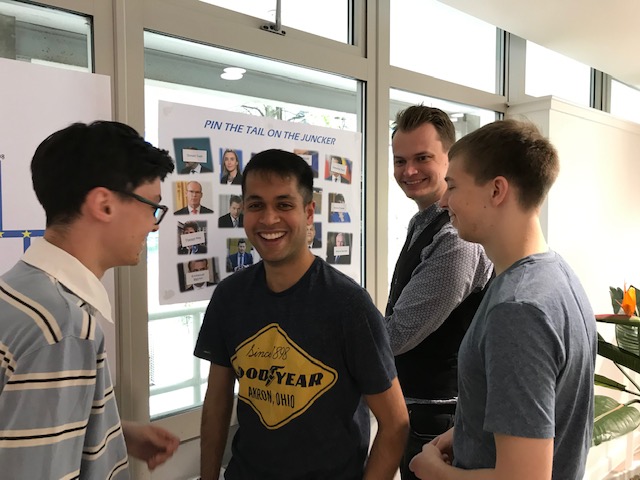
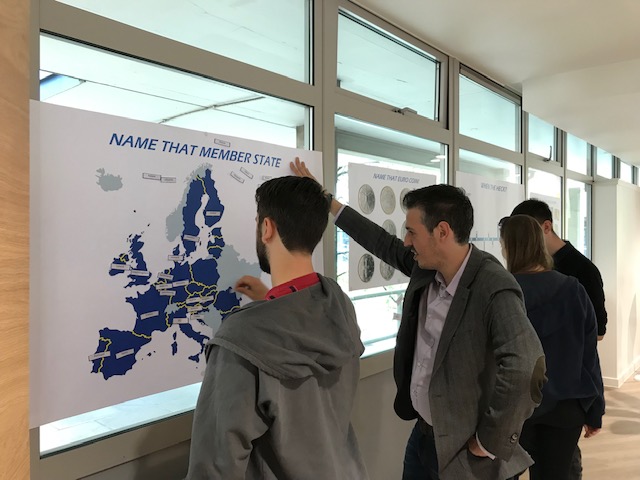
Check out the brand-new European Youth Week website here: https://europa.eu/youth/week_en#eyw-youth-events
UniSurrey is a strong supporter of Erasmus, promoting student and staff exchanges across a wide range of disciplines and faculties, with innovative ways for both undergraduate and postgraduate students alike to get involved. More info available here: https://www.surrey.ac.uk/student-exchanges/study-abroad/erasmus-exchange
Jean Monnet: Foundations of Knowledge
Finally, Jean Monnet. Where Spinelli remains a lesser known initiator of European integration (possibly because of his abiding communist affiliations), Jean Monnet abides as an acknowledged founding father of the entire European project. He was creative, far-sighted, boundlessly energetic, willing to try any number of different angles to arrive at a solution, and wholly dedicated to the peace-making, prosperity-generating ideals of a working Europe. Much of his vision has materialised in terms of integration, inter-locking institutions. Much has not, with serious divisions over policy sharing, the borders of Europe and the future of the continent as a community.
Education, above all, provides information, knowledge and the basis for sound judgement; Jean Monnet believed in the transformative power of key structures including higher education. That thousands of of modules, Chairs, Centres and networks have since blossomed across Europe in his name would, I suspect, delight him no end. Education means critical awareness: weighing up the pros and cons, thinking about what works in Europe, and what doesn’t.
Only the highest quality teaching is able to tackle something as complex as the EU and teach it clearly, engagingly and judiciously, and that’s what Jean Monnet awards do: recognises the highest possible calibre teaching, learning, research and now, outreach on all aspects of Europe. It’s no mean feat to be awarded a module for a new course on Europe; a Chair for a group of related teaching and activities in a given area like security, law or gender; or a Centre of Excellence that produces a critical mass of teaching, research, and engagement with university communities, civil society and policy-makers alike. I’m honoured to have had Jean Monnet affiliations for the majority of my teaching career in HEIs in the UK and Europe, and am proud to support the work of the Jean Monnet Chair, here in the Department of Politics at the University of Surrey. Watch this space, because there’s more planned in this respect…
I’ll end with a personal thrill, and that was chairing a truly eminent group of Jean Monnet scholars, young and (ahem) young at heart, at the beautiful European University Institute in Florence, as a side activity of the annual EUI State of the Union Conference, in mid-May.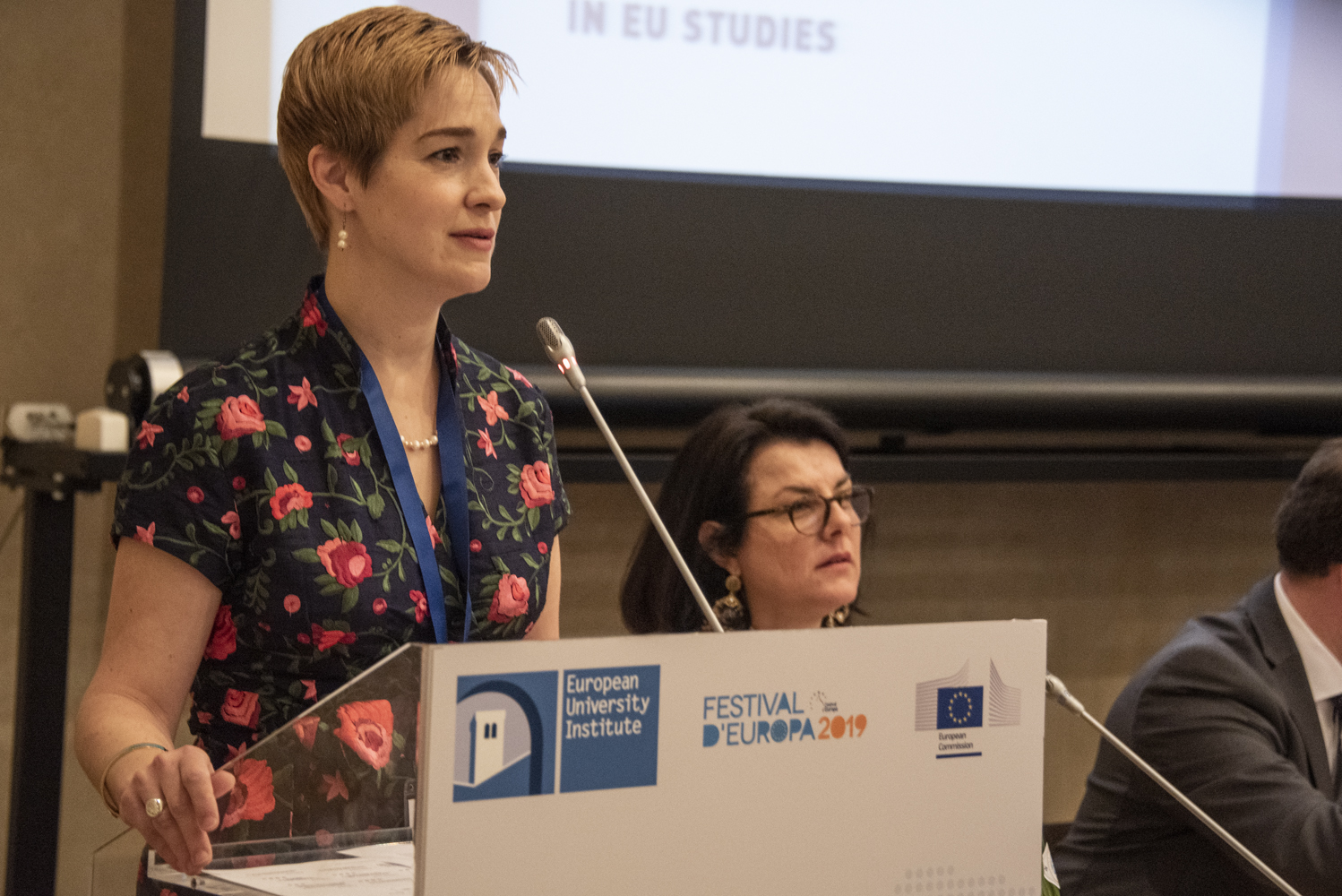
Celebrating its own 30th anniversary, the key theme was celebrating the historical importance of Jean Monnet activities, including the very real practical benefits achieved by the Jean Monnet programme in supporting teaching, research and policy debates across an ever-widening field of European studies. Together with fabulous panellists including Professor Renaud Dehousse, President of the EUI, Martina Lubyová, the Slovakian Minister for Education, Lorenzo Fioramonti, Vice Minister at the Italian Ministry of Education, Paola Sartorio, Director, Fulbright Schuman Program, Professor Alberto Alemanno, Joao Pinto, President of the Erasmus Students Network, and the wonderful Professor Andrej Zwitter, Dean of University of Groningen, we explored for a solid 2 hours the legacy that the Jean Monnet activities have created in young people across the continent, and in countries far beyond. We concluded that 21st century education is bound to change. Innumerable pressures are making it daily more difficult for young people in Britain, Europe and world-wide to figure out who they are within their communities. As educators, we have a duty of care to use all provisions at our disposal to provide a clear-sighted, critically aware view of the role of Europe in short and long term. It’s a worthy challenge, so let’s get busy!